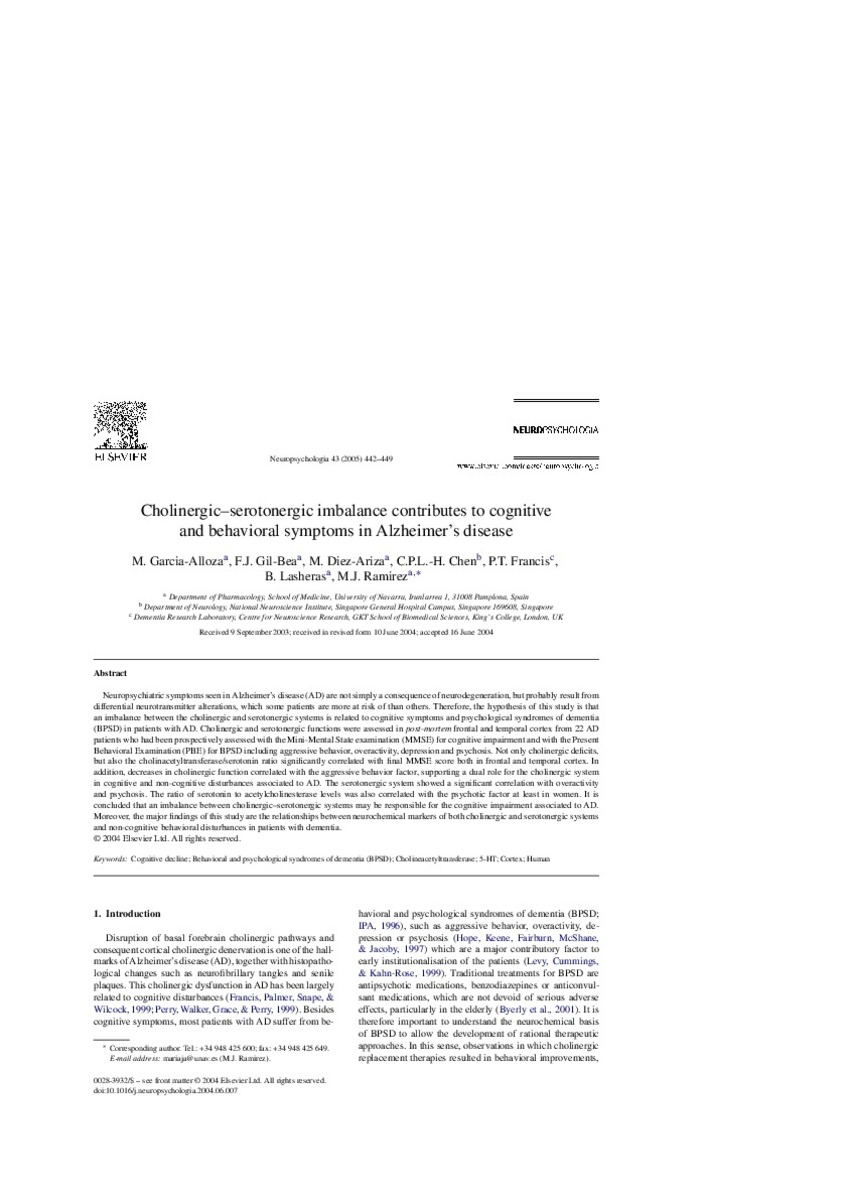Cholinergic-serotonergic imbalance contributes to cognitive and behavioral symptoms in Alzheimer's disease
Keywords:
Cognitive decline
Behavioral and psychological syndromes of dementia (BPSD)
Cholineacetyltransferase
5-HT
Cortex
Human
Citation:
Garcia-Alloza M, Gil-Bea FJ, Diez-Ariza M, Chen CP, Francis PT, Lasheras B, et al. Cholinergic-serotonergic imbalance contributes to cognitive and behavioral symptoms in Alzheimer's disease. Neuropsychologia 2005;43(3):442-449.
Statistics and impact
0 citas en

0 citas en

Items in Dadun are protected by copyright, with all rights reserved, unless otherwise indicated.







